SFI Medical Short Course 2016 - Faculty 2016
From Santa Fe Institute Events Wiki
| Education Event Navigation |
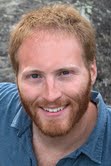
Ben Althouse, Tracking and Curbing the Next Pandemic
Research Scientist, Institute of Disease Modeling; Former SFI Omidyar Fellow. Ben Althouse has brought his enjoyment of the dynamic, intellectually challenging and inherently collaborative nature of the scientific process to the IDM Epidemiology team as a Research Scientist, where he will explore pneumococcal pneumonia vaccines, the dynamics of enteric diseases, and the role of complex human contact structures on disease transmission. He was an Omidyar Fellow at the Santa Fe Institute, and holds a PhD in Epidemiology and a Master of Science in Biostatistics from the Johns Hopkins Bloomberg School of Public Health where he was awarded an NSF Graduate Research Fellowship, and holds Bachelor of Science degrees in Mathematics and Biochemistry from the University of Washington. His previous work has included mathematical modeling of sylvatic dengue virus transmission in nonhuman primates in Senegal, examining the role of antimicrobial use on the evolution of drug resistance, using Twitter as a model system of co-infection dynamics, and using novel data sources (such as Google searches, Twitter, and Wikipedia article views) for population-level surveillance of infectious and chronic diseases. Ben is an Affiliate Faculty member in the Department of Biology at New Mexico State University, Las Cruces, and a Guest Lecturer in the Information School at UW.
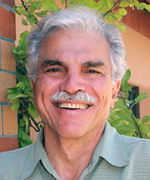
John Arden Panel
John recently retired from Kaiser Permanente where he was the Director of Training for Mental Health for Northern California. He is currently Chief Academic Officer at the Institute for Behavioral Health. Previously, he worked in New Mexico with Native Americans and Latinos. He is the author of 14 books.
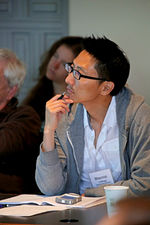
Hiroshi Ashikaga, Information Theory of the Heart
Dr. Ashikaga received an M.D. and a Ph.D. degrees from the University of Tokyo, Japan. He completed his clinical training in Internal Medicine at the University of Tokyo and Beth Israel Medical Center, where he served as a Chief Resident. He received his research training in Biomedical Engineering and Cardiovascular MRI at the University of California, San Diego and the National Institutes of Health. He also completed clinical training in Cardiology and Cardiac Electrophysiology at the Johns Hopkins Hospital. He is currently an Assistant Professor of Medicine and Biomedical Engineering at the Johns Hopkins University School of Medicine.
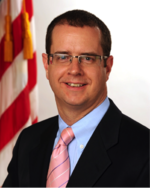
Niall Brennan: Leveraging CMS data to accelerate health system change
Niall Brennan is CMS’ Chief Data Officer and the Director of the Office of Enterprise Data and Analytics (OEDA). In this capacity, he oversees improvements in data collection and dissemination at CMS and efforts to help CMS better harness its vast data resources to drive higher quality, patient-centered care at a lower cost. Niall directs leading-edge research and analysis published by CMS, as well as efforts to make its considerable data sets available to external researchers seeking to promote better understanding of health care in the United States. He also manages CMS’ extensive data and information product portfolio. Prior to joining CMS, Niall worked at the Brookings Institution, the Medicare Payment Advisory Commission, the Congressional Budget Office, The Urban Institute, and Price WaterhouseCoopers. He is a graduate of University College Dublin, and earned a master’s degree in Public Policy from Georgetown University.
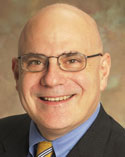
Timothy G. Buchman, Panel
Santa Fe Institute External Faculty, Ph.D., M.D.; Founding Director, Emory Center for Critical Care, and Professor of Surgery, Emory University School of Medicine, Department of Surgery, and Emory Center for Critical Care
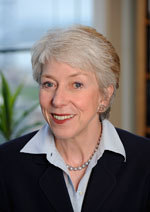
Christine K. Cassel, Panel
Cassel, MD, President and former CEO of the National Quality Forum, is a leading expert in geriatric medicine, medical ethics and quality of care. Cassel has just joined the leadership team designing the new Kaiser Permanente School of Medicine in Southern California
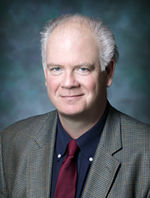
Joshua Epstein, Modeling Health
Santa Fe Institute External Faculty; Professor of Emergency Medicine; Joint appointments: Departments of Economics, Biostatistics, and Environmental Health at Johns Hopkins University; Director, Center for Advanced Modeling in the Social, Behavioral and Health Sciences (CAM) at Johns Hopkins.
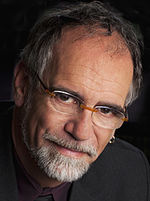
Joe Flower, The Future of Healthcare
With over 30 years’ experience, Joe Flower has emerged as a premier observer and thought leader on the deep forces changing healthcare in the United States and around the world. As a healthcare speaker, writer, and consultant, he has explored the future of healthcare nationally and internationally, with clients ranging from the World Health Organization, the Global Business Network, and the U.K. National Health Service, to the majority of state hospital associations in the U.S. as well as many of the provincial associations and ministries in Canada, and an extraordinary variety of other players across healthcare – professional associations, pharmaceutical companies, device manufacturers, health plans, physician groups, and numerous hospitals.
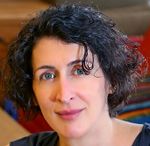
Mirta Galesic, Communicating Complexity in Health and Medicine to the Public
Description
How well do people understand complex systems, including aspects such as different kinds of uncertainties, nonlinearities, feedback loops, and multicausality? I will present what we currently know about these issues and describe some promising ways to communicate about complexity to people with different levels of numeracy skills.
Bio
Mirta Galesic is Professor and Cowan Chair in Human Social Dynamics at the Santa Fe Institute, and Adjunct Researcher at the Center for Adaptive Behavior and Cognition at the Max Planck Institute for Human Development in Berlin, Germany. She studies how simple cognitive mechanisms interact with social environment to produce seemingly complex phenomena. She also studies risk and uncertainty in complex systems, in particular in financial, medical, and environmental domains.
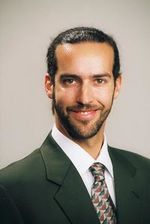
Ross Hammond, Obesity and a Complex Systems Approach to Solutions
Santa Fe Institute External Faculty; Senior fellow in Economic Studies and Director of the Center on Social Dynamics and Policy, Brookings Institution
Ross A. Hammond primary area of expertise is modeling complex dynamics in economic, social, and public health systems using methods from complexity science. His current research topics include obesity etiology and prevention, food systems, tobacco control, behavioral epidemiology, health disparities, childhood literacy, crime, corruption, segregation, and decision-making. Hammond received his B.A. from Williams College and his Ph.D. from the University of Michigan. He has authored numerous scientific articles in prominent journals such as Lancet, JAMA Pediatrics, American Journal of Public Health, PNAS, Evolution, and Journal of Conflict Resolution, and his work has been featured in The Atlantic Monthly, New Scientist, Salon, Scientific American, and major news media.
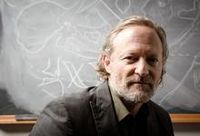
David Krakauer, President of Santa Fe Institute - Welcome and Introduction to SFI
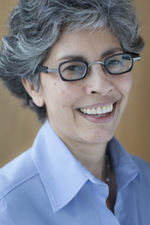
Pilar Ossorio, Machine Learning in Medicine
Dr. Ossorio is Professor of Law and Bioethics where she is on the faculties of the Law School and the Department of Medical History and Bioethics at the Medical School. In 2011 she became the inaugural Ethics Scholar-in-Residence at the Morgridge Institute for Research, the private, nonprofit research institute that is part of the Wisconsin Institutes of Discovery. She also serves as the co-director of UW's Law and Neuroscience Program, as a faculty member in the UW Masters in Biotechnology Studies program, and as Program Faculty in the Graduate Program in Population Health. Prior to taking her position at UW, she was Director of the Genetics Section of the Institute for Ethics at the American Medical Association, and taught as adjunct faculty at the University of Chicago Law School.
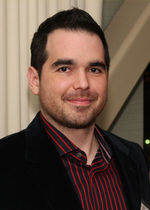
Dario Robleto, An Unknown History of the Human Heartbeat
Dario Robleto is a transdisciplinary artist based in Houston, Texas. Robleto uses unexpected materials such as melted vinyl records, dinosaur bones, meteorites, glass produced by atomic explosions, lost heartbeat recordings from the 19th century, and he transforms these artifacts from the vast inventory of humanity’s collective past into delicately layered objects that are sincere and personal meditations on love, death, eroding memory, and healing.
He has had numerous solo exhibitions since 1997, most recently at the Menil Collection, Houston, TX (2014) and the Baltimore Museum of Art (2014). Robleto has been a visiting artist and lecturer at many universities and institutions including Massachusetts Institute of Technology, Cambridge, MA, and the Hubble Space Telescope Science Institute, Baltimore, MD.
In 2013-14 he served as the California College of the Arts Viola Frey Distinguished Visiting Professor, Oakland, CA. He has been a research fellow and resident at institutions such as Rice University (2013-14) and the Smithsonian Museum of American History (2011). In 2015 he joined a distinguished team of scientists as the artistic consultant to “Breakthrough Message”—a multi-national effort that aims to encourage intellectual and technical debate about how and what to communicate if the current search for intelligent beings beyond Earth is successful.
He is currently serving as an Artist-in-Residence in Neuroaesthetics at the University of Houston’s Cullen College of Engineering and at the SETI Institute in Mountain View, CA. He was recently appointed as the 2016 Texas State Artist Laureate.

